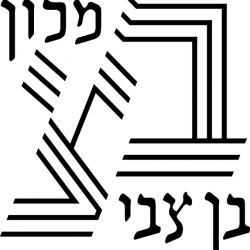Proverbs

The Preservation of Jewish Languages and Cultures in memory of Hayyim (Marani) Trabelsy

To grandmother Tuboy Oros and grandmother Nekdam Tsvia and the grandfathers, to my mother Ktsiʿaa Levi and especially to my family and the coming generations

Dadim pachta mekoret (my father plants cotton and collects white gold)
This song is about a young girl telling that her father grows cotton. This may suggest that they are a wealthy family since families from the cotton industry were in fact wealthy.
The girl says, “My father plants cotton and collects white gold”, and that she wants the cover and veil to burn and turn to dust. She does not want to cover her face and says she is young and so deserves a young man.
Many times they would marry the young with older men, and daughter Sara, for she is from a wealthy family, is allowed to marry whomever she wants.
The song is slightly rebellious in the way that it goes against wearing facial veils and forced marriage.
Azizam (my dear)
In this song, the girl turns to her beloved and says:
“My dear, what have I done that distant you from me,
I am in your memory and you are with me,
I miss seeing you,
My tongue and mouth crowning my head,
If I have said anything wrong I apologize,
I am in your memory and you are with me.”
Osfuni pur citurat (the skies plant stars)
This song is a bridal song separating from her family and asking the matchmaker to stand up for her rights.
“The skies plant stars and my head thinks love thoughts about you, I turn around your head like a dove and water you with bird milk.”
She promises many impossible things, but knows that marriage will not be simple.
When she thinks of the place she is going to, she thinks about eating bread and dates at her father’s house, when at her new home, her husband is waiting with a lock and chains. Meaning, she will be locked and chained.
She asks the matchmaker to stand up for her rights when signing the terms, and sends her on her way with flowers “I will spread flowers on the way you walk in.”
Chudram bsaram jeram (the matchmaker song)
The matchmaker wants to match a girl, probably to her nephew. She is telling him she is covering herself and going to the girl’s family house.
He warns her that he won’t get to see the girl before the wedding – he won’t marry her.
She says that is the custom. The young man cannot see the girl before the wedding. She tells her nephew that he wants her to match him with a girl: “Your aunt will be your atonement”, it is an idiom that means he should trust her.
To grandmother Tuboy Oros and grandmother Nekdam Tsvia and the grandfathers, to my mother Ktsiʿaa Levi and especially to my family and the coming generations

In memory of Rabbi Eliyahu Ben Efraim ZT"L
The song was sung in 1983 during the night of Passover at Rabbi Eliyahu Ben Efraim’s house in Dushanbe

1
Şudam ʙar surratat oşuq
Ki ʙar man mekunad gavƣo
Ci surrat surrati dilʹʙar,
Ci dilʹʙar dilʹʙari zeʙo
2
Agar az ʙoƣ xaʙar ojad
Ba sad gul gul ʙaron dilʹʙar
Ci gul gul gul guli ʙulʹʙul
Ci ʙulʹʙul ʙulʹʙuli şajdo
3
Nigori man ʙa sad xuʙi
Ki zulʹfaş naƣate dorad
Ci nagat nagati amʙar
Ci amaʙar amʙari soro




Dedicated to the memory of Rabbi Eliyahu Ben Efraim ZT"L.
Recorded in Dushanbe.

Dedicated to the memory of Rabbi Eliyahu Ben Efraim ZT"L.
Recorded in Dushanbe.
